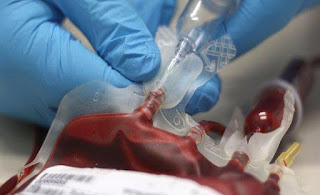Detecting the Silent Threat: The Importance of Colorectal Cancer Screening
Introduction:
Colorectal cancer is one of the most prevalent and deadly cancers worldwide. Often referred to as the "silent threat," this disease can develop without any noticeable symptoms in its early stages, making it crucial to detect it as early as possible. Colorectal cancer screening plays a vital role in identifying abnormalities before they progress into cancer, offering the best chance for successful treatment and improved outcomes. In this blog, we will emphasize the importance of colorectal cancer screening and how it can save lives by detecting the silent threat at an early, treatable stage.
Understanding Colorectal Cancer: The Need for Screening
Colorectal cancer originates in the colon or rectum and is primarily a disease of aging, with most cases diagnosed in individuals over 50 years old. Although its exact cause is not always clear, certain risk factors, such as a family history of colorectal cancer, a personal history of polyps, and a sedentary lifestyle, can increase the likelihood of developing the disease. Early detection through regular screening is key to preventing colorectal cancer or catching it at an early, more treatable stage.
Types of Colorectal Cancer Screening Tests
Several screening methods are available for detecting colorectal cancer, ranging from simple at-home tests to more invasive procedures. Stool-based tests, such as fecal immunochemical test (FIT) and guaiac-based fecal occult blood test (gFOBT), are non-invasive and can be done in the comfort of one's home. Additionally, there are visual exams, such as flexible sigmoidoscopy and colonoscopy, which allow doctors to directly visualize the colon and rectum and remove any polyps or abnormal tissues.
Benefits of Regular Screening: Early Detection Saves Lives
The primary goal of colorectal cancer screening is to catch abnormal growths, known as polyps, before they turn cancerous. Removing polyps during screening procedures can prevent cancer from developing or detect cancer at an early stage when it is more treatable. Regular screening can significantly reduce the risk of advanced colorectal cancer and mortality rates, making it an essential component of preventive healthcare.
Screening Recommendations and Guidelines
Various medical organizations, including the American Cancer Society and the United States Preventive Services Task Force, provide guidelines for colorectal cancer screening based on age, risk factors, and personal health history. It is essential for individuals to discuss their specific screening needs with their healthcare providers and adhere to the recommended schedule for early detection and prevention.
Overcoming Barriers to Screening: Spreading Awareness
Despite the proven benefits of colorectal cancer screening, many people still face barriers to accessing and completing these tests. Factors like fear, embarrassment, and lack of awareness can deter individuals from undergoing screening. Raising awareness about the importance of early detection, promoting education about the various screening options, and offering support can help overcome these barriers and encourage more people to prioritize their colorectal health.
Conclusion:
Colorectal cancer may be a silent threat, but with regular screening, its potential impact can be significantly reduced. Detecting the disease early through screening provides the best chance for successful treatment and increased survival rates. By understanding the importance of colorectal cancer screening and adhering to recommended guidelines, individuals can take control of their health and protect themselves from this serious disease. Spreading awareness and promoting open discussions about colorectal cancer screening will ensure that more lives are saved through early detection and prevention. Remember, early detection is the key to defeating the silent threat of colorectal cancer and ensuring a healthier future for everyone.




Comments
Post a Comment